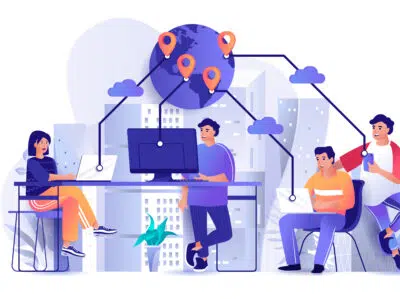Inclusivity: The 7 contributors to organisational success

Are mid-management roles the next target in tech layoffs? Here’s what experts have to say
February 21, 2023
Demand for recruitment process outsourcing is growing. Here’s why
February 21, 2023
Understanding Diversity, Equity and Inclusion
Workplace diversity, equity and inclusion (DEI) is a hot topic in human resources (HR). However, people are often confused by these terms. Let us begin by understanding them.
Diversity pools people from various backgrounds such as gender, age, race, ethnicity, sexual orientation, religious beliefs, etc.

Equity recognises that each person requires different resources to do their job properly.
Inclusion is what makes diversity work.
Diversity without inclusion is powerless. What can organisations gain by fostering inclusivity? Continue reading.
The 7 benefits of inclusivity
- A wider talent base
Anyone — a woman, a person with a disability, a member of the LGBTQ community, or a retired government official — can have the skills you seek.
Being inclusive gives voice to the diverse milieu and makes optimum use of the assorted skill sets at your disposal.
- Innovation and creativity
Workers from diverse backgrounds bring unique experiences and fresh perspectives to the table. However, not all of them are forthcoming with their ideas. Inclusion is the gentle encouragement they receive from team leaders to speak up. Creative problem-solving and innovation are natural byproducts of an inclusive environment.
- Positive work atmosphere
Inclusivity creates an environment where employees feel heard, respected, included and valued. The work environment in such organisations is positively contagious, with confident individuals spreading cheer and new ideas floating around.
- Higher employee retention and loyalty
We have already seen how inclusiveness contributes to employee happiness. And humans have a tendency to gravitate towards happy areas. It comes as no surprise that effective inclusion initiatives boost employee retention and loyalty.
- Greater team spirit and morale
Inclusivity fosters better understanding among the team, and consequently, more cohesive teamwork. When people identify as members of a team, rather than talented individuals, the group’s collective morale improves.
Just as a rope is stronger than its separate strands, a team is capable of achieving more and performing better than its individual members.
- Increased productivity
Motivated teams are easy to engage. Members contribute their skills readily, display greater commitment to their role and deliver more with the same available resources and time.
- Better leaders
Everyone in the organisation must be inclusive. It is the responsibility of leaders to set a positive example. Those who are seen as good listeners and encouragers not only motivate their staff but also become better leaders.
The advantages of inclusion are self-evident. Without inclusivity, diversity is like a light bulb without electricity.
How can businesses make all employees feel that they belong? Fair treatment, equal respect, equal opportunities, and equal access to resources are just a few ways to ensure everyone feels needed and appreciated.
Inclusivity brings success
The business case for inclusivity is strong. Studies have shown a positive correlation between inclusivity and profits. Consider these findings:
- Companies with higher gender diversity generate up to 41 per cent more revenue than their less gender-diverse counterparts.
- Inclusive companies have a better likelihood — 1.7 times more — of being innovative.
- Organisations that foster DEI are 87 per cent better at decision-making.
Moreover, 48 per cent of Gen Z belongs to racial or ethnic minorities, making inclusivity an imperative for organisations. It is also worth bearing in mind that today, 76 per cent of job seekers evaluate companies on their DEI quotient.
To combat economic downturns, succeed in a dynamic market and retain talent, companies must use all of the instruments at their disposal, including inclusion.


